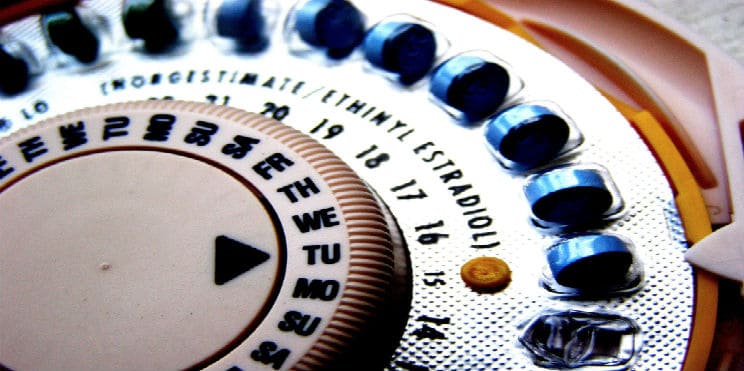With the many different types of birth control available today, how do you decide which is the best fit for your body and lifestyle? Knowing all of your options is the first step to deciding which type of birth control is best for you.
When weighing the pros and cons of the different types of birth control there are several factors to discuss with your gynecologist. You will want to consider the protection level against AIDS, HIV, and STDs, effectiveness and length of use, and your tolerance for or comfort level with introducing hormones to your system.
IUDs and Implants
IUDs and implants are attractive because of their longevity – lasting between 3 and 10 years. These types of birth control require insertion by a doctor in a medical office. They are usually recommended for women in long-term committed relationships, because while they are 99% effective for pregnancy prevention, they do not protect from AIDS, HSV, or other STDs.
The hormonal IUD is made of thin flexible plastic and works by releasing a small amount of progestin into your system, preventing fertilization of your eggs. Hormonal IUDs last up to five years, although you need to check monthly that it is properly in place by locating the small string in your vagina.
The copper IUD is made of plastic wrapped in copper-containing wire and works by releasing copper ions into your uterus. Copper ions and copper ion containing fluids are toxic to sperm and create an inhospitable environment for egg fertilization.
If you are uncomfortable with or unable to tolerate hormones, a copper IUD may be a good alternative. These IUDs can work effectively for over a decade, but long-term use can open you up to pelvic inflammation and infection that can lead to infertility if left untreated so ask your gynecologist about your risk levels.
The birth control implant is a small rod that your doctor inserts under the skin of your upper arm. The implant works by releasing a steady stream of hormones into your system that keep your ovaries from releasing eggs and thicken your cervical mucus, which blocks sperm from reaching an egg. This type of birth control lasts up to three years and can be removed at any time if you are trying to become pregnant.
Shots, Pills, Patches, and Rings
Shots, pills, patches, and vaginal rings all use hormones to prevent pregnancy and can be 91-99% effective when used correctly. They contain either estrogen, progestin, or both – which stop ovulation, thicken the cervical mucus, and thin the uterine lining to discourage pregnancy.
Many women appreciate the reduction in menstrual bleeding and cramping that these types of birth control can also provide. Remember, none of these types of birth control protect against HIV, AIDS or STDs.
The vaginal ring is a flexible, plastic ring that is placed in the upper vagina for 21 days and removed for seven, during which you have your period.
The adhesive patch is worn for a week at a time for three consecutive weeks, with a week free of the patch during which you have your period.
Birth control pills come in 21, 28, 90, and 365-day pill options. There are two main types of birth control pills: combination pills which contain estrogen and progestin, and progestin-only pills (or the “mini pill”). The mini pill has fewer side effects, but it must be taken at exactly the same time every day to be effective. Be sure to ask your gynecologist which program is the best fit for your lifestyle and unique body.
Shots of progestin administered every three months thicken cervical mucus, thin the endometrium, and prevent ovulation. Women often experience lighter, or no periods after extended use, and you do not have to remember to take it every day. However, a healthcare provider must administer the shots, which requires a physical visit to your gynecologist’s office.
Remember, condoms are the best protection against STDs and should be used in conjunction with every other type of birth control to ensure your sexual and reproductive health. If you have had unprotected sex, visit your gynecologist for STD testing to prevent the spread of sexually transmitted infections.
Contact The Woman’s Clinic to discuss which types of birth control are right for you with one of our compassionate and experienced gynecologists. Call 501-664-4131 to set up a personal health consultation.
*Photo courtesy of outcast104 through Flikr

